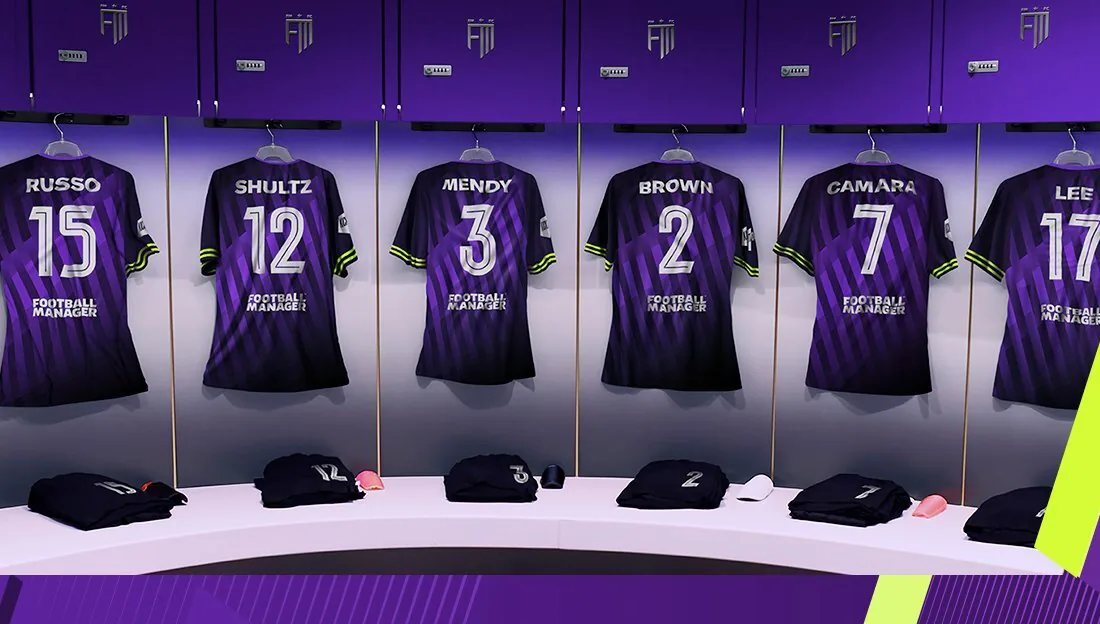It goes without saying but it really is vitally important that you get to know and understand the meaning of each and every player attribute if you want to get the best out of your team. While some of the basic attributes need no explanation (I think we all know what jumping means!), there may be some that you are less familiar with.
For all those of you who are too lazy to consult the game manual, low and behold an individual explanation for all conceivable player attributes allowing you to analyse the strengths and weaknesses of your side down to a tee.
Technical Attributes
These attributes are the real meat of the football world, where the elite are separated from the very good, and the very good from the rest. These are the playing attributes, where you’ll be looking for consistent ratings across the board for most of your players, and high-end ratings for the elite players you want to add to your squad.
Corners:
This attribute reflects how well the player takes a corner. Taking advantage of set-pieces is important, and having a capable corner taker to put the ball into key areas is useful.
Crossing:
This indicates a player’s proficiency at crossing the ball from wide areas into the penalty box.
Dribbling:
This refers to the player’s ability to dribble with the ball. This is purely his proficiency with the ball at his feet – his Pace, Acceleration, Agility, and Balance will all aid his dribbling in different circumstances, and whilst a higher dribbling attribute will also help him in different situations, dribbling alone isn’t enough to get by.
Finishing:
The player’s ability to put the ball in the back of the net when presented with a chance. A high finishing attribute will put the shot on target a majority of the time as a bare minimum but compared to a player with poorer finishing will find the places where the goalkeeper can’t save it. This is purely the ability of the player to perform an accurate shot – Composure and Decisions will also impart on the ability of a player to score consistently.
First Touch:
How good a player’s first touch is when receiving possession. A higher rating will ensure that the player can trap the ball quicker and put it in a useful position to then act upon. Players with lower ratings here will struggle to control the ball as adeptly and may be prone to losing the ball if closed down quickly.
Free Kicks:
This reflects how good at taking free kicks the player is. It applies to both direct shots at goal and deliveries into dangerous areas from wider or deeper positions. A player who is proficient in taking free kicks can be a valuable commodity – scoring five free kicks a season and adding five more assists from them can be a huge bonus.
Heading:
This is a player’s competence in aerial situations. Heading applies to all situations and is only about the player’s ability to head the ball well. Jumping (and to a lesser extent Strength) plays a big part in combination with heading to utilize the attribute to a greater level, as well as a player’s height.
Long Shots:
This is the player’s prowess at shooting from distance – from outside the penalty area. It is largely a stand-alone attribute but pay attention to any PPMs (Preferred Player Moves) the player may have which complement their long shots rating.
Long Throws:
The ability of the player to perform a long throw, which can be taken advantage of in attacking situations.
Marking:
How well players, mainly defensive types, mark an opponent. Marking alone will see them do a good job if the attribute is high, but remember that other attributes – Strength, Off the Ball, Anticipation – will play a part in the effectiveness of the marking, as well as the comparable physical statures of the two players.
Passing:
How good the player is at passing the ball. His technique and ability will determines his success at passing over longer distances.
Penalty Taking:
The ability of the player from the penalty spot. A player with a high rating here will be more confident and capable from 12 yards.
Tackling:
How successfully the player is at winning tackles and not conceding fouls from such situations. Players with a high tackling rating will consistently win the ball cleanly and be a more capable defensive player.
Technique:
Technique is the aesthetic quality of a player’s technical game – how refined they appear to be with the ball. A player with high technique will be more likely to pull off a tricky pass or a cross-field ball with greater ease than someone less technically able. This in turn affects a number of technical attributes – poorer technique will let a player down.
Mental Attributes
Ideally you’ll want every one of your players to be mentally strong. If your players have high mental attributes you’re on the right road to success – you’ll have a team of determined and committed players who will give their all for the team, whilst having a nice balance of flair and commitment.
Aggression:
This reflects a player’s attitude in terms of playing mentality but is not necessarily a dirtiness indicator. A more aggressive player will look to involve himself in every incident and get stuck in, perhaps at the expense of a yellow card or two. A less aggressive player may shy away from situations and merely drop into his comfort zone.
Anticipation:
How well a player can predict and react to an event. If a player has a high attribute here he can read the game well and react to situations quicker than others. This attribute works well with ‘Off the Ball’.
Bravery:
How committed and indeed, brave, a player is. Braver players will risk injury more in situations a lesser-minded player may shy away from. They’ll go in where it hurts and lay it on the line for the team.
Composure:
The player’s steadiness of mind and ability, particularly with the ball. When faced with a big goalscoring chance or heavy pressure defensively, a player with high composure will be able to keep his head and more often than not make an intelligent decision which is beneficial to the team.
Concentration:
This reflects a player’s concentration on an event-by-event basis. A high rating here will mean the player can concentrate harder for longer and be able to respond to incidents late in the game just as well as he did early on. Lower concentration will see players lose focus and perhaps become liable to mistakes at crucial times in the match.
Creativity:
This refers to a player’s vision and ability to see a potential opening, not necessarily exploit it. A player might be able to see something to take advantage of but also requires the technical proficiency to pull it off.
Decisions:
The ability of a player to make a correct decision a majority of the time. This attribute is important in every position but perhaps moreso for central defenders and midfielders, who will see a lot of the ball and have a number of options when in possession.
Determination:
A commitment to succeed. A determined player will give everything in order to win. This ties in with Bravery – players with a high attribute in one of these attributes may also be high in the other as the traits necessary are similar.
Flair:
A natural talent for the creative and occasional unpredictability. A player with a lot of flair will be one of the key attacking components in any team but at the same time may need tactical restraint to get the best out of him. Flair and Creativity work well together.
Influence:
Influence is the player’s ability to affect events or other players without any intentional effort. Players with high influence will be leaders on the pitch and team-mates will tend to rally around these players.
Off the Ball:
A player’s movement without the ball. Similar to Anticipation, this is how well a player, particularly attacking ones, can assess a situation and then move off the ball, making themselves available to receive a pass in a dangerous position.
Positioning:
Positioning is the ability of a player to read a situation and position himself in the best possible position to deal with the unfolding events. Anticipation will help him in the first stage but in terms of his actual positioning, it comes down to this attribute. A higher rating will ensure the player takes up a better position.
Teamwork:
How well the player follows tactical instructions and works for and alongside his team-mates. A team full of players with a high rating here will work better as a unit. Players with lower ratings will slack off and not ‘buy in’ to the team ethos.
Work Rate:
This reflects the player’s mental drive to work hard. A high rating will ensure a player wants to work his socks off from start to finish, but he will need the necessary physical attributes to actually be able to pull it off. Nonetheless, it is an admirable trait to have in your team.
Physical Attributes
A physically fit team that is strong, tall and fast will always be able to pull through tough situations on the basis of their physical prowess.
Acceleration:
Acceleration is how quickly a player can reach top speed (pace) from a standing start. It therefore ties in very closely with the Pace attribute.
Agility:
Agility reflects how well a player can start, stop, and move in different directions at varying levels of speed (pace). It ties in with the Pace, Acceleration, and Balance attributes as they work together in the match engine, especially when a player is running with the ball.
Balance:
Balance reflects simply how well a player can keep his balance in situations both with and without the ball. With the ball, it refers to how balanced he is running with it and evading opponents, without it, it refers to his balance when facing a player running at him, or his stability when turning/jumping.
Jumping:
This attribute related to how high a player can jump from a standing start.
Natural Fitness:
How fit a player is as standard – his base level of fitness. It affects how many games he is likely to be able to perform to peak physical fitness in before becoming noticeably tired and susceptible to injury.
Pace:
Pace is a player’s top speed. Whereas Acceleration reflects how quickly a player can attain their top speed, pace is that top speed and together with Stamina and Natural Fitness, is how long they are able to maintain that pace in both short bursts and over the course of a match. A player will naturally be a shade quicker without the ball than with it.
Stamina:
Stamina is a player’s ability to endure high-level physical activity for a long period of time. With the demands placed on a player over a nine month season, players with high attribute ratings for Stamina will be able to perform at their top levels for longer. It ties in directly with Natural Fitness.
Strength:
A player’s strength is his ability to exert his physical force on an opponent to his benefit. A player with a high strength rating will be able to use it to his advantage against weaker opponents.
Goalkeeping Attributes
Aerial Ability:
This is a goalkeeper’s ability to deal with the ball in aerial situations – punching and catching. Goalkeepers with higher ratings here will be able to deal with these potentially tricky situations more capably. Taller goalkeepers may have an advantage as well, but that isn’t to say smaller ones will struggle.
Command of Area:
This affects how well the goalkeeper takes charge of his penalty area and works with his defensive line. A goalkeeper who commands his entire box (i.e. has a high rating) will be instinctive and look to take charge of situations, especially coming for crosses (therefore working in tandem with Aerial Ability). Do note, however, that a high rating only increases his penchant for coming for crosses and not necessarily claiming them all.
Communication:
How well a goalkeeper communicates with his defensive line and organises the defensive side of the team. A higher rating reflects a better communicator and will allow your back five (or more) to work better together, ensuring better defensive stability.
Eccentricity:
This attribute represents the likelihood of the goalkeeper to do the unexpected and typically act completely un-like a goalkeeper. Things like dribbling out of his area will be commonplace if the eccentricity attribute is high.
Handling:
How securely the goalkeeper holds onto the ball when making a save or coming for a loose ball. Greater handling will be beneficial in unfavourable weather conditions, but in general a goalkeeper who doesn’t give up rebounds will be useful.
Kicking:
The physical capability of a goalkeeper to kick the ball – this purely defines the distance he can reach. His Passing and Technique ratings will define how accurate his kicks are.
One on Ones:
The ability of the goalkeeper to do well when faced with an opponent in a one on one situation. Higher attributes will see goalkeepers attempt to impose themselves and win the ball with confidence.
Reflexes:
How good the goalkeeper is at making instinctive reaction saves. If he has a high reflexes rating he will be able to respond to the unpredictable with more success and be able to pull off the highlight reel saves.
Tendency to Punch:
This determines whether a goalkeeper will catch the ball when he can, or punch it clear. A higher rating reflects a tendency to punch most things clear even when it may be possible to hold onto the ball.
Throwing:
How good the goalkeeper’s distribution with his arms is. A higher rating will increase the accuracy of his throws, although Strength imparts on the distance he is able to reach.
Add Sportslens to your Google News Feed!






